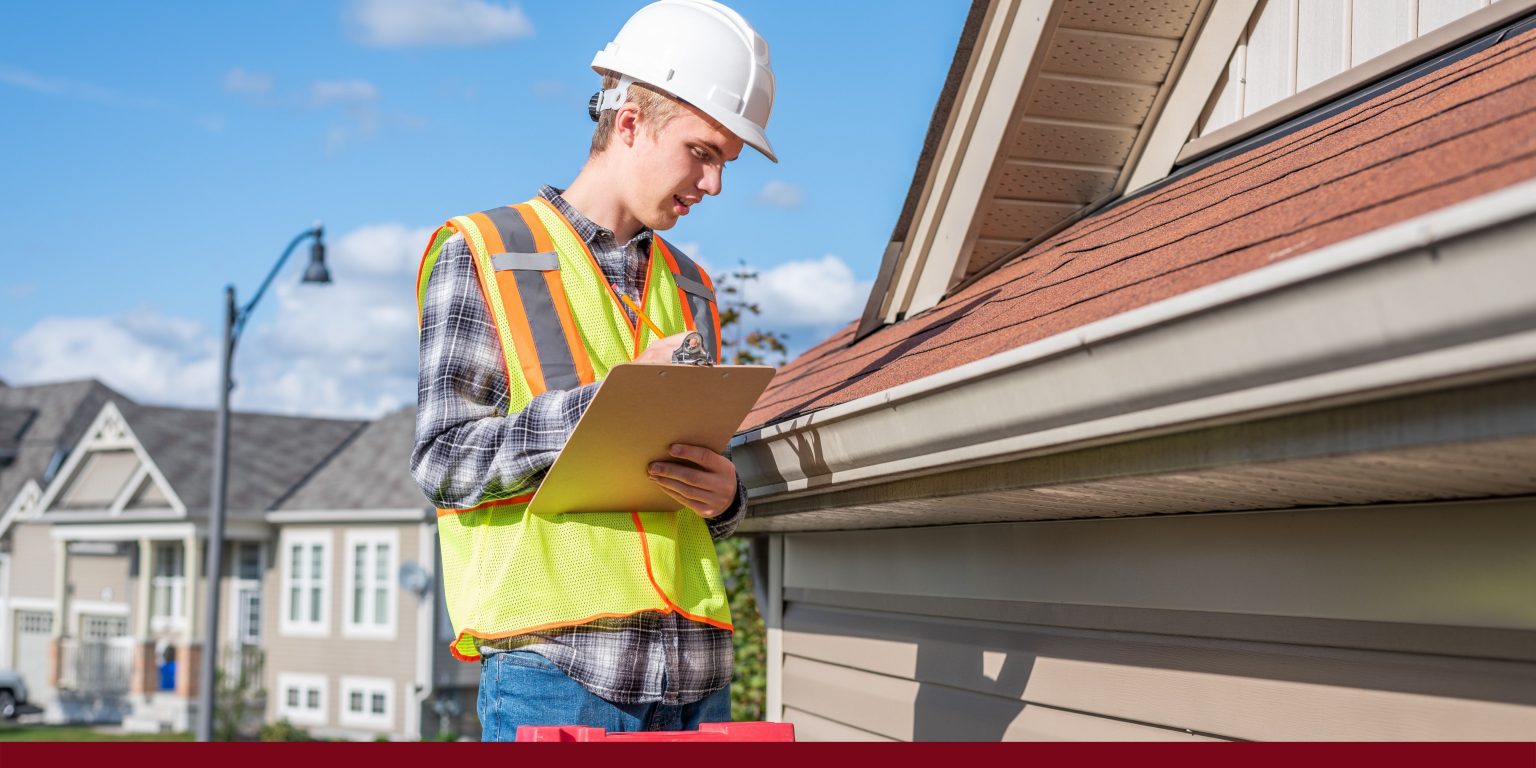Your roof plays a vital role in protecting your home from the elements, so when it’s time for a roof replacement, it’s essential to be well-prepared. Roof replacement can be a significant investment, but with proper planning, you can ensure a smooth and successful project. These ten simple tips will help you prepare for a roof replacement and make the process as smooth as possible.
Tip 1: Assess the Roof’s Condition
Before considering a roof replacement, it’s crucial to assess your existing roof’s condition thoroughly. Neglecting to do so can lead to severe risks, such as unexpected leaks that can cause extensive water damage to your home’s interior. Ignoring minor damages can escalate them into major issues, increasing costs and potential safety hazards. A weakened roof can also fail to protect your home adequately in extreme weather conditions, posing a risk to the safety and security of your household.
A thorough assessment helps identify potential problems early, ensuring your roof replacement is timely and effective. It provides insight into the extent of damage or wear, allowing you to make informed decisions about the materials and scope of the project. Moreover, a proper assessment can offer peace of mind, knowing that your new roof will provide reliable protection for years.
To assess your roof properly:
- Check for Visible Damage: Look for missing, cracked, or curled shingles.
- Inspect for Leaks or Water Damage: Pay attention to water stains or mold in your attic or on ceilings.
- Evaluate Roof Age: Determine how old your roof is; most roofs have a lifespan of 20-30 years.
- Look for Sagging: A sagging roof deck indicates structural issues.
- Examine the Gutters: Check for shingle granules in the gutters, a sign of advanced wear.
- Inspect Flashings: Ensure that the flashings around vents, chimneys, and skylights are intact and not damaged.
Tip 2: Research Roofing Materials
Choosing the right materials is a pivotal decision in the roof replacement process, as the material affects not only the appearance of your home but also its durability, weather resistance, and energy efficiency. The decision can be overwhelming, with many options available in the market, from traditional asphalt shingles to eco-friendly green roofing, metal roofs, and luxurious slate tiles. Each material comes with its own set of benefits and limitations. For instance, asphalt shingles are cost-effective and versatile. Still, they may not last as long as metal roofing, which offers exceptional durability and weather resistance but at a higher cost.
Understanding the specific needs of your home’s geographical location, budget, and aesthetic preference is crucial in making an informed decision. Some materials are better suited to withstand heavy snowfall, while others are ideal for hot climates due to their reflective properties. Moreover, considering the weight of the material is essential, as some options may require additional structural support.
To research roofing materials effectively:
- Compare the lifespan and warranty of different materials
- Evaluate the material’s impact on your home’s energy efficiency
- Consider the aesthetic appeal of the material
- Assess the environmental impact of the material
- Determine the maintenance requirements of each material
Tip 3: Budget for Roof Replacement
Budgeting for a roof replacement is a critical step in the preparation process, as it ensures you can comfortably afford the necessary work without compromising quality. Roof replacement can be a significant financial undertaking, with costs varying widely based on the size of your roof, the chosen materials, and the job’s complexity. Additionally, unexpected issues such as structural repairs or the need for new gutters can increase the overall expense.
To create a realistic budget for your roof replacement, consider the following steps:
- Get Multiple Estimates: Obtain detailed quotes from several reputable contractors to compare prices. Ensure these estimates include the same scope of work for an accurate comparison.
- Factor in Unforeseen Costs: Allocate 10-20% of your budget for unexpected expenses. This contingency fund can cover hidden damages or last-minute changes.
- Research Material Costs: Prices for roofing materials vary significantly. Metal roofing or slate tiles are generally more expensive than asphalt shingles but offer different lifespans and aesthetic appeals.
- Consider Financing Options: If paying for the roof replacement upfront is not feasible, explore financing options. Some contractors offer payment plans, or you may qualify for a home improvement loan.
- Check Insurance Coverage: If your roof needs replacement due to damage from a covered event (like a storm), your homeowner’s insurance may cover some or all of the costs. Always check with your insurance company to understand your policy’s coverage.

Tip 4: Choose a Reliable Contractor
Choosing a reliable contractor is the most crucial step in your roof replacement journey. The right contractor ensures the quality of your new roof and affects the overall timeline, budget, and your satisfaction with the project. With so many companies offering roof replacement services, finding the one that best meets your needs requires careful consideration and vetting.
Here are essential tips for selecting a trustworthy roofing contractor in Glastonbury, CT:
-
- Check Credentials: A reputable contractor should have all the licenses and insurance required by your state. This protects you from liability in case of accidents or damage during the project. Look for a contractor with extensive experience in roof replacement projects. Experienced contractors like Morrissey Construction can handle any unforeseen issues during the project.
- Read Reviews and Ask for References: Online reviews and testimonials can provide insight into the contractor’s reliability and quality of work. Additionally, ask for references from recent projects to get a firsthand account of their workmanship and customer service.
- Get Everything in Writing: Ensure all aspects of the project are documented from the initial estimate to the final agreement. This includes the scope of work, materials to be used, timelines, payment schedules, and warranties. A detailed contract helps avoid misunderstandings and ensures both parties understand expectations.
- Communication is Key: Your contractor should be easily reachable and willing to answer your questions. Effective communication throughout the project is essential for a smooth process and satisfactory outcome.
- Compare Quotes: While price shouldn’t be the only factor in choosing a contractor, it’s important to compare quotes from several companies. This helps ensure you’re getting fair value for your investment. Remember, the cheapest option isn’t always the best regarding quality and reliability.
- Check Warranties: Ensure the contractor offers warranties on both materials and workmanship. Knowing that any issues post-installation will be addressed gives you peace of mind.
Tip 5: Plan the Timeline
Planning the timeline for a roof replacement is crucial to ensure the project aligns with your schedule, the contractor’s availability, and favorable weather conditions. Proper timing can significantly reduce the inconvenience to your household and enhance the efficiency of the installation process.
Here’s how to plan the timeline for your roof replacement:
-
- Assess the Season: Choosing the right season is critical. Spring and fall usually offer mild weather, making them ideal for roofing projects. However, consider your local climate’s specifics and potential off-season benefits like lower rates or quicker contractor availability.
- Prepare for Delays: Weather unpredictability and hidden structural problems can delay your project. Incorporating a buffer into your timeline for these unforeseen issues will help manage expectations and reduce stress.
- Coordinate with Your Lifestyle: Consider your schedule and any upcoming events or commitments. Planning the roof replacement during a less busy period for your family can minimize the disruption to your daily life.
Tip 6: Prepare Your Home
Preparing your home for a roof replacement is essential to ensure the process goes smoothly and that your household remains safe and comfortable during the project.
Here’s how you can effectively get your home ready:
-
- Secure Your Belongings: Cover or move your furniture and possessions away from the work area to protect them from dust and debris. This simple step prevents damage and minimizes cleanup.
- Prioritize Safety: Keep children and pets away from the construction area for their safety. Construction zones can be hazardous, so establishing clear boundaries is crucial.
- Consider Temporary Relocation: If possible, consider temporarily relocating during the roof replacement, especially if you have young children, elderly family members, or pets who may find the noise and disruption distressing. Staying with friends or family can relieve the noise and keep your daily routines intact.
- Plan Flexible Schedules: Consider adjusting your daily schedules if you stay home during the replacement. Plan activities that take you away from the noise during the workday or schedule quiet time for rest during the noisiest hours.

Tip 7: Landscaping and Exterior Precautions
When preparing for a roof replacement, safeguarding your landscaping and exterior features is paramount. Neglecting these precautions can lead to significant risks, such as damage to your outdoor spaces and the structural integrity of your property.
Here’s how you can protect your exterior during a roof replacement:
- Cover and Trim: Prior to the roof replacement, cover delicate plants and outdoor items with tarps or protective coverings to shield them from falling debris. Additionally, trim any overhanging tree branches that could interfere with the roofing work. This prevents damage to your roof and landscaping.
- Clear the Work Area: Remove any obstacles or items near the work area to ensure a safe and unobstructed space for the roofing crew.
- Communicate Concerns: Share specific concerns about landscaping with your roofing contractor. They can adjust their work methods to minimize potential damage.
- Debris Cleanup: Discuss debris cleanup with your contractor. Ensure they plan to remove roofing debris promptly, preventing it from piling up in your yard.
Tip 8: Inform Your Neighbors
Effective communication with your neighbors is key to preparing for a roof replacement. It fosters good relations and helps manage potential concerns and expectations.
Here are steps to effectively communicate with your neighbors:
- Inform About the Project: Let your neighbors know about the upcoming roof replacement project. Provide them with details about the timeline and expected noise levels. This proactive approach prevents surprises and demonstrates consideration for their peace.
- Discuss Noise Management: If the project is expected to be noisy, consider discussing ways to mitigate the impact. You can agree on specific hours when the noisiest work will occur or offer alternative accommodations if needed.
- Maintain Open Lines of Communication: Encourage your neighbors to reach out if they have any concerns during the project. Being accessible and open to their feedback can help address issues, concerns or complaints promptly.
Tip 9: Ensure Legal Compliance
Compliance with local regulations and permits is essential when preparing for a roof replacement. Failure to adhere to legal requirements can result in delays, fines, or even the halting of your project.
Here’s how to ensure legal compliance:
- Verify Permits and Approvals: Confirm that all necessary permits for the roof replacement have been obtained. If you belong to a homeowners’ association (HOA), check if their approval or guidelines are needed for your roofing project to prevent disputes. Additionally, check with your contractor to ensure compliance with local building regulations.
- Check Contractor’s Licensing: Ensure your roofing contractor holds the required licenses and insurance mandated by your state or local authorities. This safeguards you from liability and ensures quality work.
- Know Local Building Codes: Familiarize yourself with local building codes and zoning regulations. Comply with these standards to avoid legal complications.
- Prepare for Inspections: Expect inspections by local authorities during and after the project. Ensure your roofing contractor cooperates with inspectors and addresses any issues promptly.
- Review Contracts: Carefully review your contract with the roofing contractor. It should outline all legal and compliance responsibilities, including permit acquisition and adherence to local laws.
- Document Everything: Keep copies of permits, licenses, and project-related documentation. These serve as evidence of compliance and can be valuable in addressing any questions or issues.
Tip 10: Warranty and Guarantee Review
Before embarking on your roof replacement project, take the time to review and understand the warranties and guarantees associated with the roofing materials and workmanship. This step ensures you’re well-informed about the protections and coverage provided for your new roof. It’s important to know what to expect in case of any issues that may arise after the replacement is complete.
- Manufacturer’s Warranty: Examine the manufacturer’s warranty for your chosen roofing materials. Understand the coverage period and any conditions or limitations. This information can be valuable if you encounter material-related problems down the road.
- Workmanship Warranty: Inquire with your roofing contractor about their workmanship warranty. A reputable contractor should offer a warranty on their labor. Be clear on the duration and what it covers, including potential repairs in case of installation issues.
- Documentation: Maintain copies of all warranty documents, including registration, if required. This documentation serves as proof of coverage and is essential should you need to make a warranty claim in the future.
Regular Maintenance: Familiarize yourself with any maintenance requirements outlined in the warranties. Regular maintenance may be necessary to keep your warranties valid. Be prepared to follow these guidelines to ensure full coverage.
FAQs
Can I replace my roof myself to save money?
While replacing your roof yourself is possible, it’s a complex and labor-intensive task requiring specialized knowledge and equipment. DIY roof replacements can lead to costly mistakes, void warranties, and pose safety risks. Hiring a professional roofing contractor is recommended for quality work and peace of mind.
How long does a typical roof replacement take?
The duration of a roof replacement varies based on factors like the size, complexity of the project, and weather conditions. It can take anywhere from one to 12 days to roof a house. To give you a more accurate timeline, consult with the best roofing contractors near you, like Morrissey Construction.
What are the signs that my roof needs replacement?
Extensive leaks, missing or damaged shingles, sagging areas, and visible water damage are signs of a roof needing replacement. Additionally, if your roof is nearing the end of its expected lifespan, consider roof replacement.
Can I install a new roof over the existing one?
Installing a new roof over an existing one is possible, but it’s not always recommended. It’s essential to assess the existing roof’s condition, ensure it’s code-compliant, and consult with a roofing professional. Adding another layer can impact the overall weight and the roof’s lifespan.
What are the benefits of proper roof ventilation?
Proper roof ventilation helps regulate temperature and humidity in your attic, preventing moisture buildup and heat retention. It can extend your roof’s lifespan, improve energy efficiency, and reduce the risk of mold and mildew growth.
Elevate Your Roofing Experience with Morrissey Construction!
Preparing for a roof replacement is a vital step in ensuring the success and longevity of this significant home improvement project. Each tip is crucial, from assessing your roof’s condition to choosing the right materials and contractor. And when it comes to expert roofing services in Glastonbury, CT, Morrissey Construction is the most trusted name in the game. With decades of experience and commitment to excellence, we have been the trusted partner in achieving a secure and beautiful roof in Glastonbury, CT, that enhances your home’s value and comfort.


